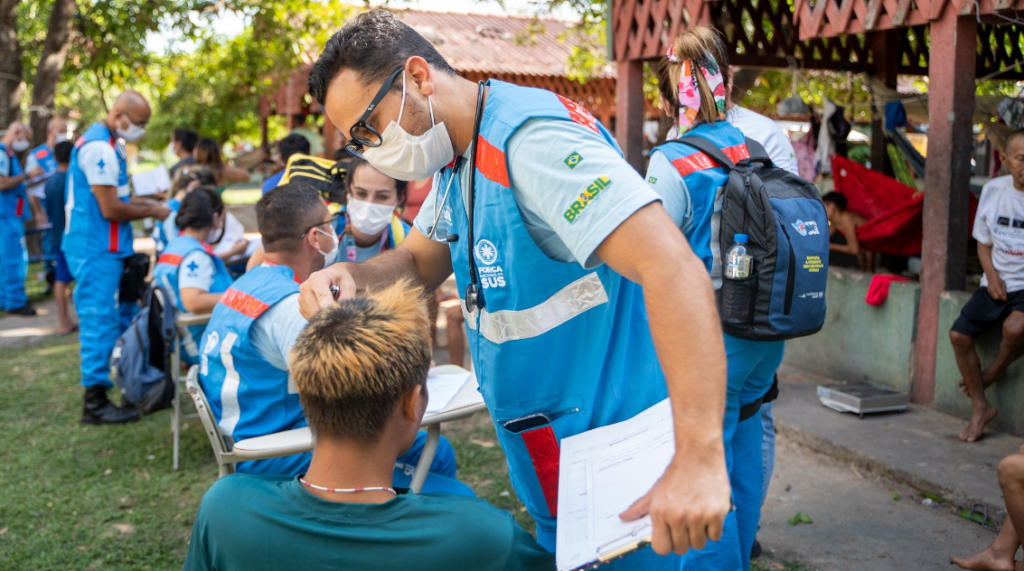
In the heart of South America lies a vibrant country known for its rich culture, stunning landscapes, and passionate people—Brazil. Among its many facets, one stands out as a beacon of both hope and challenge: the Sistema Único de Saúde, or SUS, Brazil’s Unified Health System. This system, born out of a nation’s desire to ensure healthcare for all its citizens, is a testament to Brazil’s resilience and commitment to public health, yet it faces numerous hurdles in its quest to provide equitable care.
The Genesis of SUS
Our story begins in the late 1980s, a pivotal time in Brazil’s history. The country was transitioning from a military dictatorship to a democracy, and with this change came a surge of social movements demanding better living conditions, including healthcare. The 1988 Brazilian Constitution enshrined health as a fundamental right, mandating that the state provide universal and free healthcare for all. Thus, SUS was born—a revolutionary idea in a country of over 200 million people, vast geographical disparities, and deep social inequalities.
The Early Days: Laying the Foundation
Maria, a nurse in a small town in the state of Minas Gerais, recalls the early days of SUS with a mixture of pride and nostalgia. “We had so little,” she says, “but the spirit was high. There was this incredible sense of purpose. We were building something new, something that would change lives.”
In those early years, the challenges were immense. Infrastructure was lacking, particularly in rural and remote areas. Health professionals were scarce, and resources were limited. Yet, the commitment to universal healthcare drove innovation and collaboration. Community health agents were deployed to reach the most isolated populations, and partnerships with local governments and international organizations helped bridge some of the gaps.
Expansion and Progress
Over the years, SUS expanded its reach and services. Vaccination programs were implemented nationwide, drastically reducing the incidence of diseases like polio and measles. Primary healthcare units, known as Unidade Básica de Saúde (UBS), became the backbone of the system, providing preventive care, maternal and child health services, and treatment for chronic diseases.
Eduardo, a doctor in Rio de Janeiro, highlights the significance of these changes. “Before SUS, healthcare was a privilege. Now, it’s a right. I’ve seen firsthand how access to primary care can transform communities. Children are healthier, mothers receive proper prenatal care, and chronic diseases are managed more effectively.”
The Struggle for Quality and Equity
Despite these achievements, SUS has not been without its struggles. Funding has been a perennial issue. As Brazil’s economy fluctuated, so did the financial resources available for healthcare. This instability has led to disparities in the quality of care between urban and rural areas, and between different regions of the country.
Ana, a patient in São Paulo, shares her experience. “The local UBS is always crowded. Sometimes, I wait for hours to see a doctor. But I know it’s better than having no access at all. I’ve heard stories from relatives in the northeast, where healthcare facilities are even more scarce and underfunded.”
Innovation and Community Engagement
In response to these challenges, innovation and community engagement have become critical components of SUS. Telemedicine programs have been introduced to reach remote areas, and mobile health units travel to underserved communities to provide essential services. Local councils, known as Conselhos Municipais de Saúde, allow citizens to participate in decision-making processes, ensuring that the health system remains responsive to the needs of the population.
Carlos, a community health worker, explains the importance of these initiatives. “We bring healthcare to people who otherwise wouldn’t have access. It’s not just about treating illnesses; it’s about education and prevention. We teach people how to manage their health, which reduces the burden on the system in the long run.”
The Pandemic: A Test of Resilience
The COVID-19 pandemic posed an unprecedented challenge to SUS. The system was put to the test as hospitals became overwhelmed, and the need for critical care skyrocketed. Yet, SUS’s infrastructure, with its emphasis on primary care and community health, played a crucial role in the country’s response.
Dr. Silva, an infectious disease specialist, reflects on this period. “The pandemic exposed the weaknesses in our system, but it also highlighted our strengths. The ability to mobilize resources quickly, the dedication of our healthcare workers, and the existing networks of care all contributed to our response. It was a difficult time, but it reinforced the importance of a unified health system.”
The Future of SUS
As Brazil looks to the future, the sustainability of SUS remains a key concern. Continued investment in healthcare infrastructure, workforce training, and innovative technologies will be essential. Moreover, addressing the social determinants of health, such as education, housing, and income inequality, is crucial for the system’s long-term success.
Elena, a health policy expert, emphasizes the need for ongoing advocacy and reform. “SUS is a remarkable achievement, but it requires constant vigilance and support. We must ensure that it adapts to new challenges and continues to fulfill its promise of health for all.”
Conclusion: A Story of Collective Effort
The story of Brazil’s Unified Health System is one of collective effort, resilience, and unwavering commitment to the ideal that health is a fundamental right. It is a system built by the hands and hearts of countless Brazilians—doctors, nurses, community health workers, and ordinary citizens—who believe in the power of healthcare to transform lives.
As Maria, the nurse from Minas Gerais, puts it, “SUS is more than just a health system. It’s a reflection of our values as a society. It’s a promise that, no matter who you are or where you come from, you have the right to health and dignity.” And so, the story of SUS continues, a living testament to the enduring spirit of Brazil.